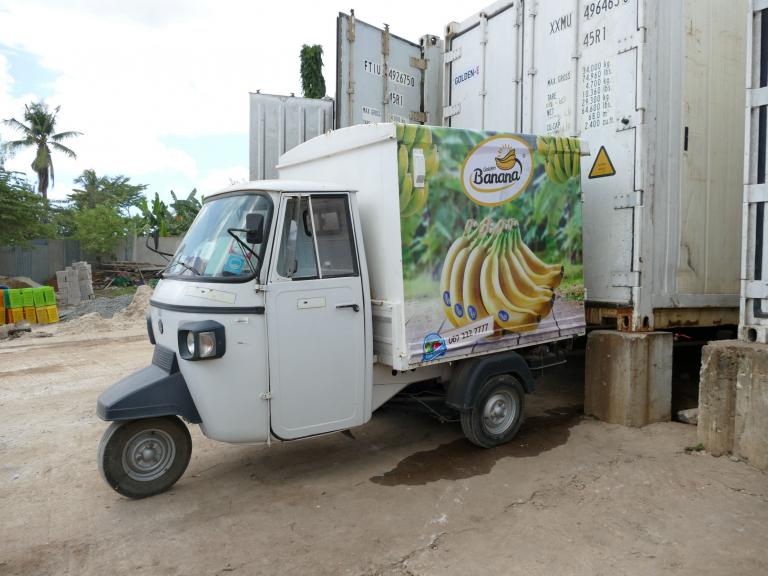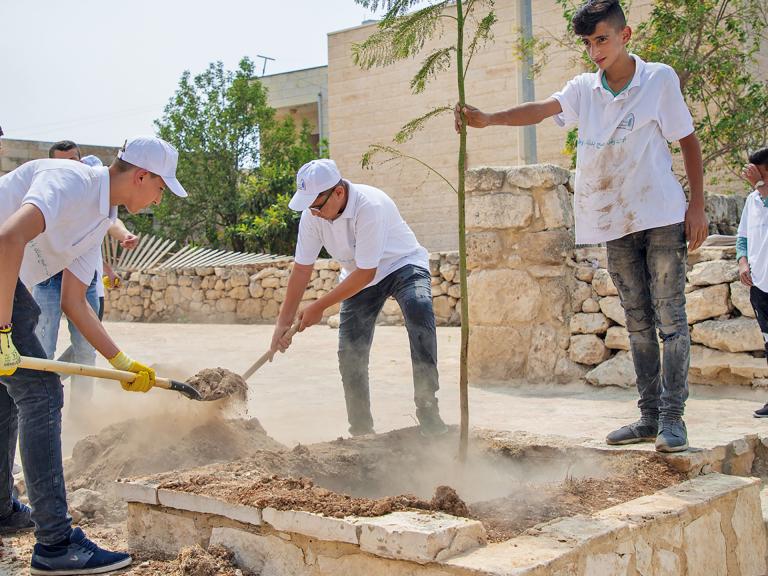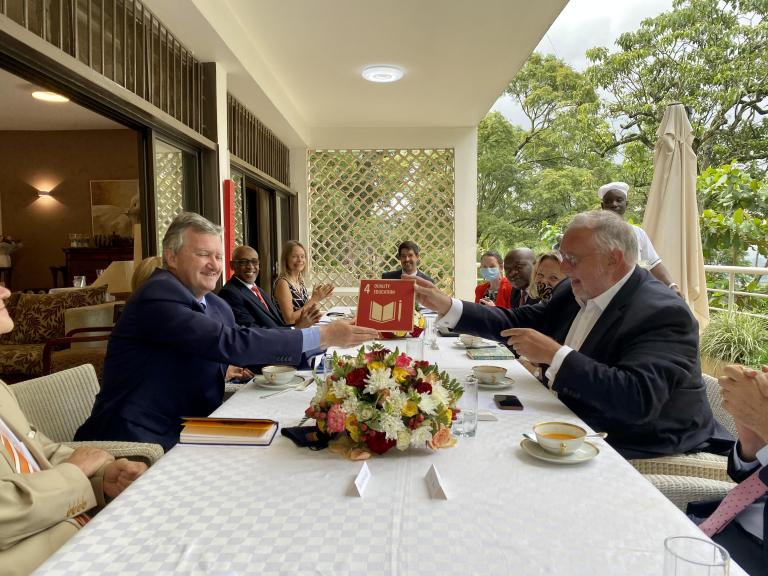-
Last updated on

Our diplomatic missions participated in 'Orange the World', a social media campaign by UN Women. This year's theme is: END VIOLENCE AGAINST WOMEN NOW! Photo: The staff of our embassy in Riyadh (Saudi Arabia). © SPF AE/FOD BZ
One in three women worldwide will experience physical or sexual violence, usually by an intimate partner. 'Violence against women and girls is one of the most widespread, persistent and devastating human rights violations in our world, and remains largely unreported due to the impunity, silence, stigma and shame surrounding it,' the UN has said.
The organisation officially declared 25 November as 'International Day for the Elimination of Violence against Women'. Various governments, international organisations, and NGOs around the world will be drawing attention to the issue on 25 November.
International fight
Women's rights are a priority for our government and for the Minister of Foreign Affairs, Sophie Wilmès, and the Minister of Development Co-operation, Meryame Kitir. Our country has committed itself in various ways to eliminating violence against women. The Belgian Development Co-operation, for example, is very active in this area. This includes financial support to multilateral organisations such as the UN Population Fund (UNFPA), support to Belgian governmental and non-governmental co-operation, and the implementation of the EU Gender Action Plan III for external action.
In addition, our diplomats are networking with respective local governments and organisations to discuss values such as equality and human rights. They then feed this information back to the central government in Brussels. In this way, the information can be taken to the Human Rights Council and provide input for adopting a position. It may also form the basis for a partnership with the country concerned.

At the start of the tournament, the young footballers watch a video message from the Belgian Red Flames in the presence of an Argentine football heroine (seated). © SPF AE/FOD BZ
Diplomats in action
Diplomat Hannelore Delcour has been posted in Buenos Aires (Argentina) and Cotonou (Benin) among other places and has worked hard for women's rights in both countries. And that’s really needed. 'In Argentina, there is officially one femicide (murder of a woman because she’s a woman) per day, but not every case is being reported. In Benin, 17% of girls under 15 are already mothers and 15% of deaths due to illegal abortion occur among girls under 15', says Hannelore Delcour.
Benin is a partner country of Belgium. 'Besides the Belgian development agency Enabel, many Belgian NGOs and UN agencies are also active there. Together, we are working to raise awareness among the population and improve health care, for example by training midwives.'
In Argentina, it is a little more complicated. 'In this country, we are trying to address the topic mainly through public diplomacy. For example, to mark International Women's Day, we organised a football match between local women's football clubs. A very famous Argentinian football heroine was present and our Belgian Red Flames also recorded a video message for the local players.' Our embassy in Buenos Aires also supported a project that raised journalists' awareness on gender-related reporting and other initiatives to help women who are victims of domestic violence.
The fight in Belgium
We are taking action at home too. Our country is currently putting the finishing touches to the sixth ‘National Action Plan to combat all forms of gender-based violence’ (2021-2025). This is fully in line with the Council of Europe Convention ‘on preventing and combatting violence against women and domestic violence’, which Belgium has ratified.
Also known as the Istanbul Convention, it focuses on four areas: the prevention of violence, the protection of victims, the prosecution of perpetrators and the development of co-ordinated policies. Non-members of the Council of Europe are also able to sign up. This is why our diplomats all over the world are working to achieve the widest possible ratification and implementation of the Convention.
In order to provide better support for victims of sexual violence, Belgium has established four Centres for Support after Sexual Violence since 2017 (Antwerp, Brussels, Liège and Ghent). Care is provided to victims by professionals who are trained to deal with these types of cases.
More on People

International Year puts fruit and vegetables in the spotlight
Fruit and vegetables should be on the menu more, says the UN in this International Year. In Tanzania, Rikolto is supporting an e...

Sustainable cities for a sustainable world
By 2050, 70% of the world's population will live in cities. That is why the Belgian development agency (Enabel) is working in it...

Team Belgium at work for SDG 4
Team Belgium - the Belgian embassy and the Belgian organisations VVOB and Enabel - was at the helm of the Education Development ...
